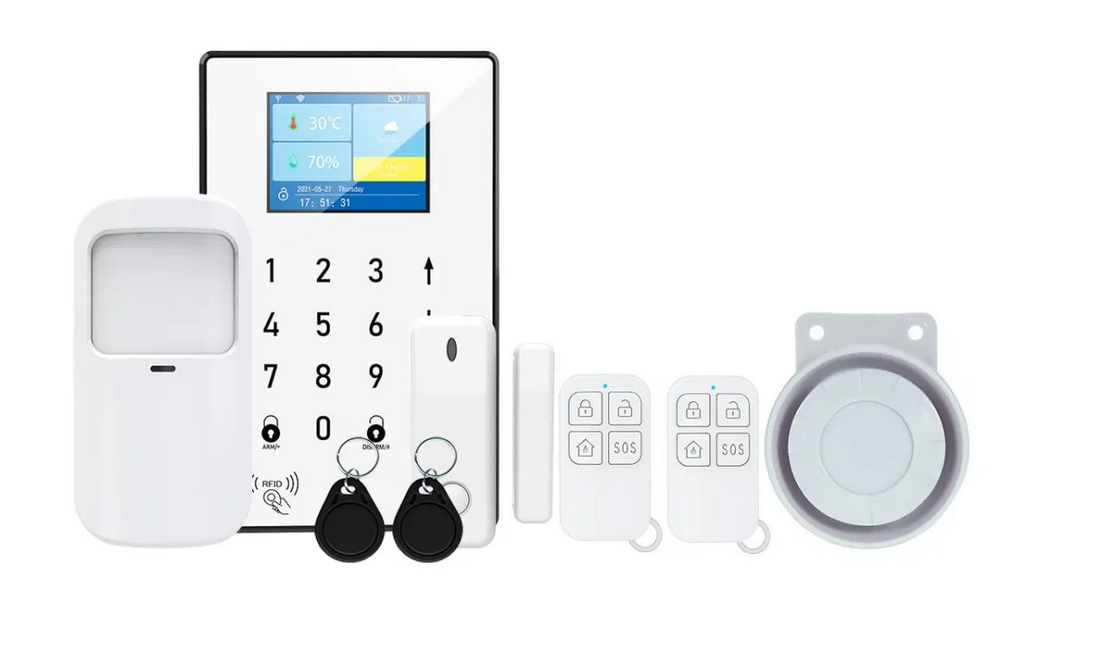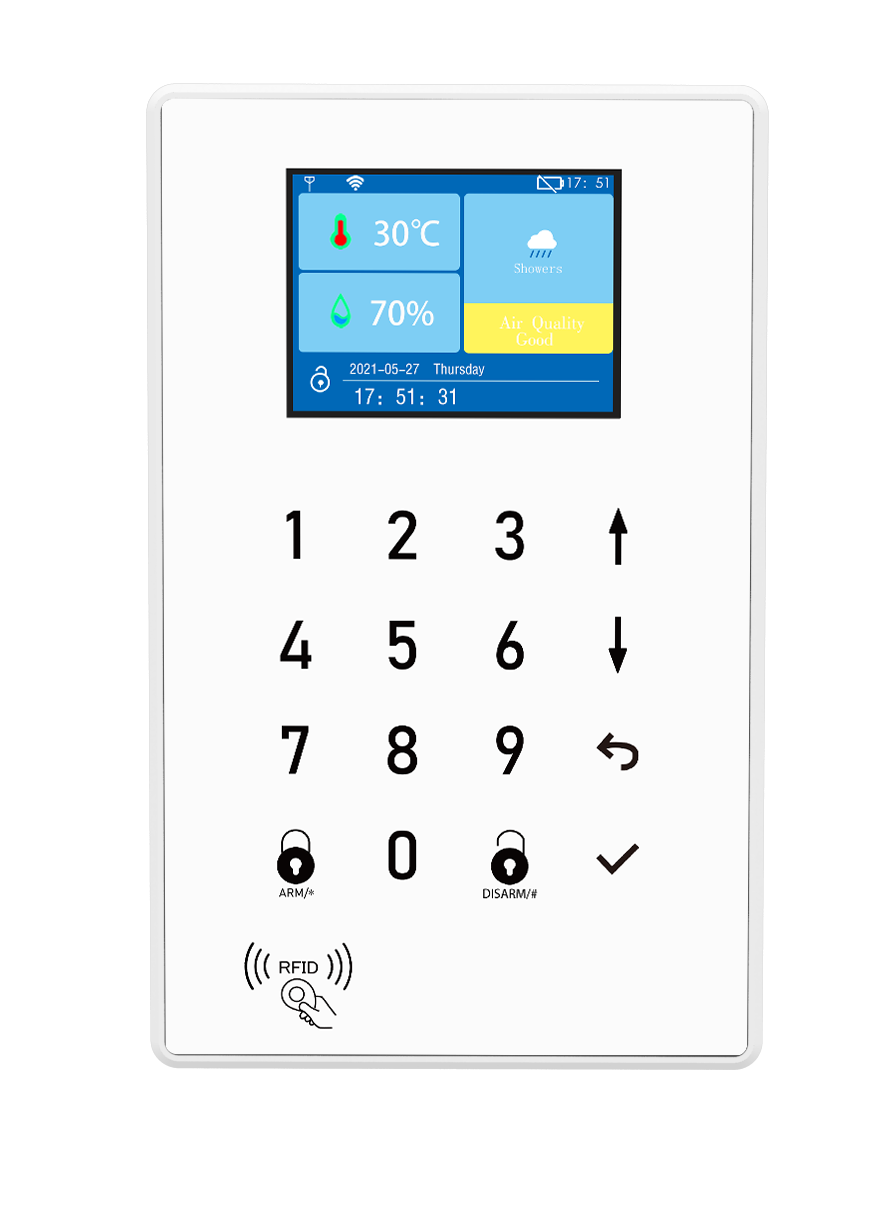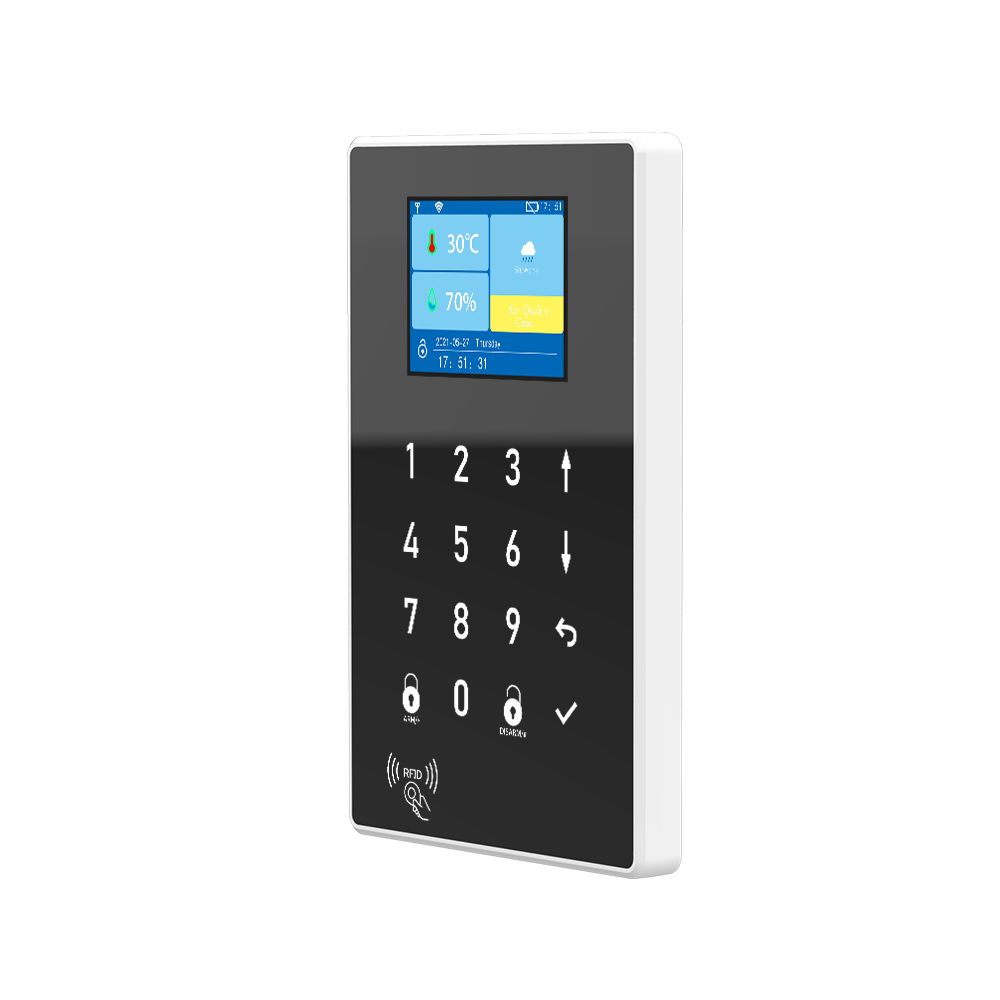How Does a Security Alarm System GSM Send Alerts?
In the modern world, where security is a top priority for both residential and commercial properties, the integration of advanced technology into alarm systems has become essential. One such advancement is the GSM alarm system, which stands out for its ability to send alerts through a network that is both reliable and widespread. This article will delve into the workings of GSM alarm systems, their benefits, and how they ensure security through timely alerts.
A alarm security system gsm is a type of security system that uses the Global System for Mobile Communications (GSM) network to send alerts and notifications. Unlike traditional alarm systems that rely on landlines, GSM systems are independent and can operate even if the phone line is cut or unavailable. This makes them a more robust choice for security-conscious individuals and businesses.

1. Components of a GSM Alarm System
At the heart of a GSM alarm system are several key components:
Sensors: These are placed throughout the property to detect unauthorized entry, movement, or other security breaches.
Control Panel: This is the brain of the system, where all sensors are connected and monitored.
GSM Module: This component communicates with the GSM network to send alerts when the system is triggered.User Interface: Allows users to arm and disarm the system, check status, and receive notifications.

2. How GSM Alarm Systems Send Alerts
When a sensor within a GSM alarm security system detects an anomaly, it sends a signal to the control panel. The control panel then processes this information and, if it confirms a breach, triggers the GSM module to send an alert. Here's a step-by-step breakdown of the process:
Detection: Sensors detect an event that matches their programmed criteria (e.g., a door opening, glass breaking).
Signal Transmission: The sensor sends a signal to the control panel, indicating the type of event and its location.
Verification: The control panel checks the signal's authenticity to avoid false alarms.Alert Initiation: Upon verification, the control panel activates the GSM module.Network Connection: The GSM module establishes a connection with the GSM network.
Message Composition: The system composes a message detailing the nature of the alert and the location.
Transmission: The message is sent to pre-programmed phone numbers or email addresses.Reception: The recipients receive the alert, allowing them to take immediate action.

3. Benefits of Using a GSM Alarm System
Reliability: GSM networks are known for their reliability, ensuring that alerts are sent even during landline outages.
Mobility: Users can receive alerts on their mobile devices, no matter where they are.
Scalability: GSM systems can be easily scaled to accommodate larger properties or additional sensors.
Integration: Modern GSM alarm systems can integrate with smart home technologies for enhanced security and convenience.
Cost-Effectiveness: While the initial investment may be higher, the lack of reliance on landlines can reduce long-term costs.
In conclusion, GSM alarm systems represent a significant leap forward in security technology. Their ability to send alerts through a robust and widespread network makes them an invaluable tool for protecting homes and businesses. As these systems continue to advance, they will undoubtedly play an even more critical role in our quest for a secure and connected world.
gsm alarm system alarm security system gsm gsm alarm systems alarm system gsm
 简体中文
简体中文
